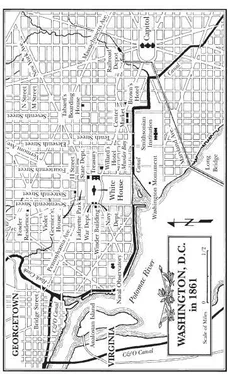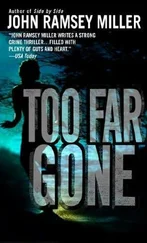John Miller - The First Assassin
Здесь есть возможность читать онлайн «John Miller - The First Assassin» весь текст электронной книги совершенно бесплатно (целиком полную версию без сокращений). В некоторых случаях можно слушать аудио, скачать через торрент в формате fb2 и присутствует краткое содержание. Жанр: Исторический детектив, на английском языке. Описание произведения, (предисловие) а так же отзывы посетителей доступны на портале библиотеки ЛибКат.
- Название:The First Assassin
- Автор:
- Жанр:
- Год:неизвестен
- ISBN:нет данных
- Рейтинг книги:3 / 5. Голосов: 1
-
Избранное:Добавить в избранное
- Отзывы:
-
Ваша оценка:
- 60
- 1
- 2
- 3
- 4
- 5
The First Assassin: краткое содержание, описание и аннотация
Предлагаем к чтению аннотацию, описание, краткое содержание или предисловие (зависит от того, что написал сам автор книги «The First Assassin»). Если вы не нашли необходимую информацию о книге — напишите в комментариях, мы постараемся отыскать её.
The First Assassin — читать онлайн бесплатно полную книгу (весь текст) целиком
Ниже представлен текст книги, разбитый по страницам. Система сохранения места последней прочитанной страницы, позволяет с удобством читать онлайн бесплатно книгу «The First Assassin», без необходимости каждый раз заново искать на чём Вы остановились. Поставьте закладку, и сможете в любой момент перейти на страницу, на которой закончили чтение.
Интервал:
Закладка:
“What are we going to do with these men?” asked Springfield.
“Right now, we’re not going to do anything with them,” said Rook. “We know they can’t do any harm here. After a day or two of sleeping on the floor and hoping that we’ll bother to feed them, they may prove more cooperative.”
The colonel wished he could summon someone with more expertise at asking questions and obtaining answers. Unfortunately, he didn’t know anybody in the city with these skills. An even more fundamental problem than finding the right person, however, was Rook’s desire for secrecy. He was running a rogue operation without General Scott’s knowledge or approval-a clandestine program that, as he saw it, was necessary in order to counteract the complacency of his superior officers. Asking around for personnel would merely draw attention to what he was doing.
He suspected that he could keep Davis and the others locked up for at least a few days without anybody noticing. Perhaps time would break their resolve. There would be logistical matters, such as providing them with food and water, though Rook did not feel particularly inclined to give them much of either. Hunger and thirst might erode their willpower as well. Would he have to post a guard outside their doors? He was tempted not to. Right now, only he, Springfield, and Clark knew of the prisoners. He wanted to keep it that way. But could he? What if somebody happened to wander through the basement? What if the prisoners sensed that they were alone and yelled for help? Would someone hear?
How all this would play out remained unclear. For now, Rook told himself that he had achieved his most immediate objectives: determining that Davis and company were an actual threat, and then preventing them from carrying out their plans. For the time being, perhaps this was enough of an accomplishment.
“This will be difficult to keep hidden,” said Springfield.
“Let me worry about that,” said Rook. “If it becomes a problem, I’ll take the blame.”
“Just tell me what to do.”
“We aren’t going to learn anything from these fellows, at least not now. We should try to learn more about the people they’re working with. There must be others. Violet Grenier may be the key.”
On hearing her name, Springfield remembered his excursion of the previous morning, when he’d followed the stranger from Grenier’s home to the boardinghouse on H Street. He told Rook about it, including the detail about the man’s ear.
“Do you think he’s connected to Davis and the others?” asked the colonel.
“It’s impossible to say. He’s definitely connected to Grenier, and she’s definitely connected to them.”
Rook ordered Springfield to keep Grenier under watch for the rest of the day. The colonel himself had to rush around the city making appearances at several posts-he had neglected his rounds yesterday and could not afford to do it again. Clark, meanwhile, would stand guard over the prisoners.
As Rook and Springfield left the Treasury and walked into the sunlight, the colonel issued a final order. “Whatever you do,” he said, “don’t let anyone spot you.”
“I won’t, sir.”
“You can always hide behind that mustache of yours.”
John Hay handed a clutch of papers to Abraham Lincoln and quit the room. He closed the door, leaving Mazorca alone with the president.
“Hello,” said Lincoln, who sounded slightly bored. The two men shook hands. Mazorca was struck by the president’s long fingers and firm grip. Lincoln gave Mazorca’s torn-up ear a quick second look, as so many people did. He gestured to a short chair. Mazorca parked himself in it, and the president began to rustle through the material Hay had given him.
As Lincoln read, Mazorca glanced around the room. The president’s office was functional rather than grand. A modest desk sat in a corner, near one of the room’s two windows and beside a fireplace. Above the mantel was a portrait of Andrew Jackson. The opposite wall displayed a pair of maps. A long table dominated the middle of the room. It was big enough for a cabinet meeting, thought Mazorca. A small lamp rested in its center, amid a mess of documents. A black gas line ran up from the lamp to a modest chandelier above it. Sunlight from the room’s big windows and yellow wallpaper brightened the space. Next to the president, a cord dangled from the ceiling. By pulling on it a minute earlier, Mazorca assumed, the president had rung the bell in the waiting room.
Lincoln himself was all angles. His knees and elbows made sharp points as he sat with crossed legs, hunched over the papers. His face looked as though an ax had carved it from a block of wood, with jagged edges and severe lines. The deep creases were distinctive but not conventionally handsome. Lincoln’s eyes were a light blue fading into gray, and they sparkled with intelligence from deep sockets. Messy hair and a beard running low along his jaw framed his countenance. Mazorca thought Lincoln was one of the oddest looking men he had ever seen.
“You have a letter here from your congressman, plus notes from a few of my local supporters.” Lincoln continued shuffling the papers. “One of these men even seems to think that he alone is responsible for my election,” he said, more to himself than his guest. “And now this immodest fellow expects a reward for getting me into this fine fix.” The president emitted a sound that was half grunt and half chuckle. Then he looked at Mazorca. “So, Mr. Collins, tell me why you want to become a lighthouse keeper in New Jersey.”
Mazorca tried not to look surprised. “Somebody must offer protection against the reefs and shoals.”
“We must all steer clear of them-ships of sea and ships of state.”
“Indeed.”
Lincoln waited for more of a response, but Mazorca did not want to say too much. He had not planned to be in this position, and he did not like to do anything he had not planned. But neither did he want a good plan to get in the way of an excellent opportunity. He knew his assignment required seizing every advantage handed to him. Here was Lincoln, seated before him and ignorant of any personal danger. They were alone.
At last the president decided to carry on. “Lighthouses have always intrigued me, Mr. Collins. When we see a light shine in the darkness, we are invariably drawn to it, like the proverbial moth and flame. The light attracts us. It invites us to come closer. And yet in the case of lighthouses, the light is often a warning. Its message is to stay away. If we approach, we perish.”
“It is important to know what things to avoid.”
Lincoln closed his eyes, leaned back in his chair, and tilted his head upward. He was trying to remember something.
“Confess yourself to heaven,” he said. “Repent what’s past; avoid what is to come.”
He opened his eyes to a blank expression on Mazorca’s face. The president smiled. “Never mind me-just a little Shakespeare. I reread those lines in Hamlet only a few nights ago.”
An uncomfortable silence settled between the two men. Mazorca assumed that Lincoln had grown accustomed to guests who did nothing but beg favors. “I suppose you wish there were lights to guide you through the darkness now, in these troubled times,” said Mazorca.
“I surely do,” replied the president. “But I would also want to know whether the lights come from a harbor calling me in or a reef warning me away.”
“Some things are not as they seem. The trick is to know which is which.”
Lincoln’s eyes narrowed. “How many legs would a dog have, Mr. Collins, if you called his tail one?”
Mazorca paused at this riddle. He wanted to say five but knew that could not be the answer. “I’ll guess four, because calling his tail a leg would not make it one.”
Читать дальшеИнтервал:
Закладка:
Похожие книги на «The First Assassin»
Представляем Вашему вниманию похожие книги на «The First Assassin» списком для выбора. Мы отобрали схожую по названию и смыслу литературу в надежде предоставить читателям больше вариантов отыскать новые, интересные, ещё непрочитанные произведения.
Обсуждение, отзывы о книге «The First Assassin» и просто собственные мнения читателей. Оставьте ваши комментарии, напишите, что Вы думаете о произведении, его смысле или главных героях. Укажите что конкретно понравилось, а что нет, и почему Вы так считаете.












